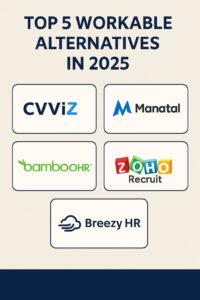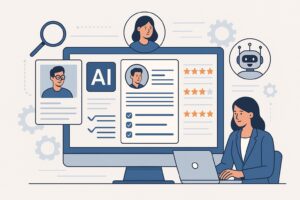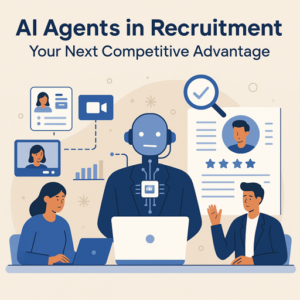What Is Resume Screening?
Resume screening is a process where you identify if the candidate is suitable for the role or not. It has been a manual process for decades. An ATS or recruiting software may act as resume screening software too. However, most of these software use keyword matching methods which are error-prone. AI in recruitment has challenged the traditional approaches. The use of AI for resume screening can automate this process with much higher accuracy. Such automation can screen thousands of resumes in a matter of a few seconds.

According to a survey by Korn Ferry, 63% of talent professional believes that AI has changed the way recruitment is done in their organization.
Recruiters that are using AI for resume screening are clearly at an advantage over recruiters who are either doing it manually or using traditional Applicant Tracking System (ATS) for resume screening. AI recruiting software offers some big advantages over traditional methods. Let’s look at some of these advantages.
Freeing Up Recruiters Time
On average, every job post receives about 250 candidate applications. If a recruiter spends about 2 minutes for screening a resume, it is 500 minutes a day. Resume screening software can do that in 2 seconds. Yes! in 2 seconds.
In addition to that, using AI for resume screening can rank these candidates based on your hiring pattern. AI can screen resume like a domain expert. It would screen resumes contextually. So, the shortlisting of candidates happens right away. Recruiters do not have to screen a pile of resumes one by one. They could find the best matching resumes soon.
With more time available, a recruiter can spend their time talking to the most promising candidates and increase their chance of engaging the right talent faster.
Engage Best Candidates
Recruiters process resumes in the order they receive it or find it. Many times they either receive applications that are not relevant or when they search for candidates on job boards, they are often misled by error-prone keyword matching techniques. e.g. when recruiters are searching for Oracle developers they end up finding many Java developers because both kinds of candidates have mentioned pl-sql on their resume. Similarly, it happens for Financial Analyst vs Data Analyst or Company Secretary vs Personal Secretary. The examples are countless.
Basically, a recruiter may end up spending a lot of time engaging non-relevant candidates. When you have already spent days in engaging not so good candidates, you may tend to believe those good candidates are difficult to find. It is then you start thinking about making compromises.

The use of AI for resume screening eliminates such noise from your resume screening process. It identifies best candidates much early in the hiring process. Therefore the chances of you interviewing the most suitable candidates are significantly higher.
AI For Resume Screening Can Reduce Unconscious Bias
Believe it or not but we tend to have an unconscious bias towards many things. Recruitment is no exception. Many times a hiring manager or a recruiter makes a decision by just reading the name of a candidate. Candidate demographics such as gender, race, religion or region can fuel such unconscious bias.
The use of AI for resume screening can help in eliminating such biases. Influential factors such as demographic details can be completely ignored while screening candidates.
Diversity is an important factor in an organization’s success. Hence it is important to address such unconscious biases that may restrict diversity at your organization.
Final Thoughts
In a very competitive talent-driven market you want to reach quality candidates faster and engage them better. Social media platforms are working as fuel to attract more active and passive candidates. With the volume of the candidate, applications are always going up, you need an approach like using AI for resume screening to quickly identify best candidates from the rest. Here is a useful reference guide on using ai for resume screening.




